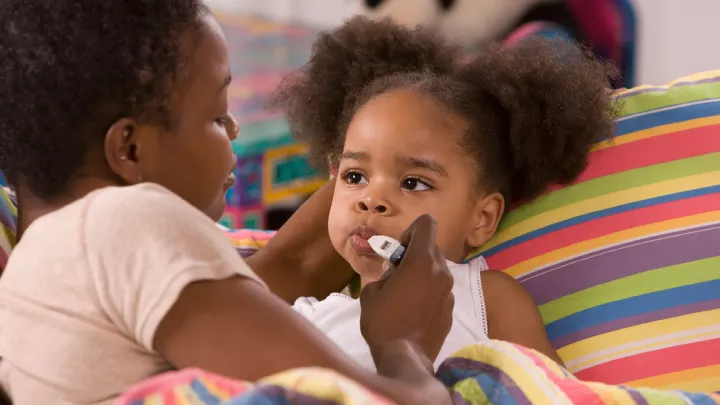Circumcision: What is it and should you do it
As a father of two handsome boys, I was faced with the decision to have my boys circumcised or not. This was a tough one to make as a father who only wants the best for his boys.
So what is a circumcision anyways? Male circumcision is the surgical removal of the foreskin from the penis. In a typical procedure, the foreskin is opened and then separated from the glans after inspection. The circumcision device is placed, and then the foreskin is removed. Topical or locally injected anesthesia is occasionally used to reduce pain and physiologic stress. The procedure is most often an elective surgery performed on neonates and children for religious and cultural reasons, but in other cases may be indicated for both therapeutic and prophylactic reasons; it is not recommended in cases of certain genital structure abnormalities or poor general health.
The American Academy of Pediatrics (AAP) says the health benefits of circumcision outweigh the risks of the surgery. But it's really up to you whether or not to have your baby circumcised. Health benefits of circumcision include being less likely to get urinary tract infections (UTIs) or sexually transmitted infections (STIs). For example, in a baby's first year of life, UTIs happen less often in circumcised boys than in boys who are not circumcised. There also may be reasons later in life when your son may need a circumcision. A boy or man may have problems retracting the foreskin or may have swelling of the foreskin that requires circumcision.
If you do choose to have it performed, the earlier you schedule your baby's circumcision, the better. Make sure an experienced professional does the procedure. In some states, an obstetrician does it in the hospital. In other states, pediatricians do it. Circumcision doesn't have to be as painful for your baby as it sounds. There are pain management methods that can help to significantly reduce the pain of the procedure for your newborn. Before the procedure takes place, be sure to ask what your options are for relieving your baby's pain.
Also, make sure you find out:
- How and when the circumcision will be done
- What the potential risks are and how often they occur
- How to care for your son's recently circumcised penis
Some reasons parents may choose circumcision include:
- A slightly lower risk of UTIs
- A lower risk of getting cancer of the penis (However, this type of cancer is very rare)
- Prevention of foreskin infections
- Prevention of phimosis, a condition in uncircumcised males that makes foreskin retraction impossible
- Easier genital hygiene
- Social reasons—many parents choose to have it done because "all the other men in the family had it done” or because they do not want their sons to feel "different"
- Religious or cultural reasons
The following are reasons why parents may choose NOT to have their son circumcised:
- Fear of the risks: Complications are rare and usually minor, but may include bleeding, infection, cutting the foreskin too short or too long, and improper healing
- Belief that the foreskin is needed: Some people feel the foreskin is needed to protect the tip of the penis.
- Belief that it can affect sex: Some feel that circumcision makes the tip of the penis less sensitive, causing a decrease in sexual pleasure later in life.
- Belief that proper hygiene can lower health risks: Boys can be taught proper hygiene that can lower their chances of getting infections, cancer of the penis and STIs.
To care for your baby’s penis after circumcision you would gently clean the area with water every day, and whenever the diaper area becomes soiled. Some swelling of the penis is normal after a circumcision. Sometimes the skin of the newly exposed glans becomes irritated by the pressure of diapers and the ammonia in urine. The irritation is usually treated with petroleum ointment (Vaseline), put directly on the area. A clear crust will probably form over the area.
It normally takes seven to 10 days for the penis to heal after a circumcision. After the circumcision, you may notice a small amount of blood in the baby's diaper. If the bloodstain is larger than the size of a quarter, call your doctor right away. In addition, you should call your doctor if a Plastibell device was used during the circumcision and the device doesn't fall off within 10 to 12 days. If there is a bandage on the penis instead of a Plastibell, the bandage should be changed each time you change your son's diaper. This will help prevent infection. Signs of infection also signal the need to call your doctor. These signs include a temperature of 100.4°F or higher, redness, swelling and/or a yellowish discharge.
In conclusion, the endless search for a medical benefit of circumcision, from treating epilepsy and irritability, to preventing sexually transmitted diseases, has often been suspect. Some parents may make the decision based on religious and family traditions, personal preferences, or the social norms of their communities. Often these cultural reasons affect the decision more than the medical risks and benefits of circumcision. Try not to be influenced by media, as parents, talk to each other and review the pros and cons of having this done to your child. Then together, in the end, you will do what is best for your son.


